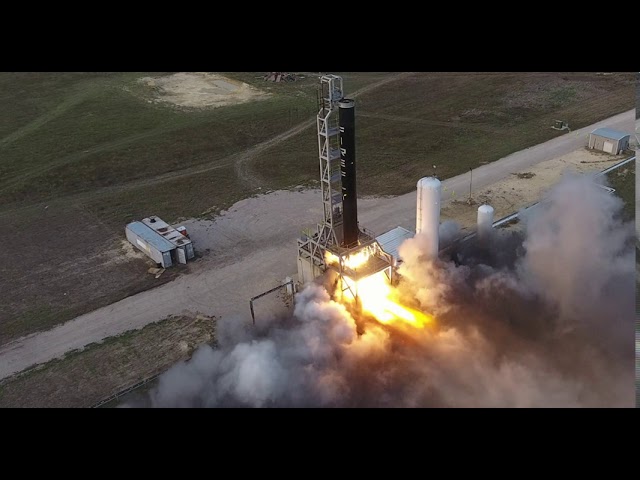
COLORADO SPRINGS: The ambitious startup Firefly Aerospace expects to launch its first rocket, Alpha, from Vandenberg Space Force Base one week from today, setting up what could be a spirited rivalry with California-based Rocket Labs.
Rocket Labs has launched two NRO payloads from New Zealand, and NRO Director Christopher Scolese said Tuesday at the annual Space Symposium that his agency plans to launch two more next year from that country. Firefly plans to also launch its rockets from Cape Canaveral.
Firefly Alpha is designed to boost up to one ton of payload to Low Earth Orbit and 630 kilos to a 500-km Sun–Synchronous Orbit (SSO) for $15 million. The rocket is designed to either take single customers or multiple payloads.
The company declined to comment on any discussions there might or might not have been with the NRO, but company spokesperson Kim Jennett did say this:
“Firefly Alpha will provide a unique capability to the US Government that is not currently available: a 1,000 kg to orbit, commercial, domestic, launch vehicle that can be used for a wide variety of missions.”
For contrast, Rocket Labs is designed to carry up to 150 kilos of payload to a sun-synchronous orbit.
A fully loaded Firefly Alpha passed a 15-second burn static test on Aug. 18, in preparation for the coming launch. Company officials say the system passed the test with flying colors.
The company plans to have Alpha ready to launch twice a month, a remarkably fast and persistent record if they can achieve it. Interestingly, the company also plans to become a Tier 1 supplier to other so-called New Space companies.
“Our goal with this line of business is to become the Tier 1 supplier of components to the New Space industry,” Tom Markusic, CEO of Firefly Aerospace, said in a statement. “Our component sales business model has inherent advantages over businesses that focus on a single (e.g., rocket engines) or narrow range (e.g., valves) of components.”
The statement argues that “Firefly will establish flight heritage for all components before supplying them to other companies, providing customers with high confidence and low risk, as the components will have been fully proven in spaceflight missions, not just ground tests.”
With Alpha’s first launch a week away, the public — and government customer — will soon get a much better sense then of the system’s reliability.